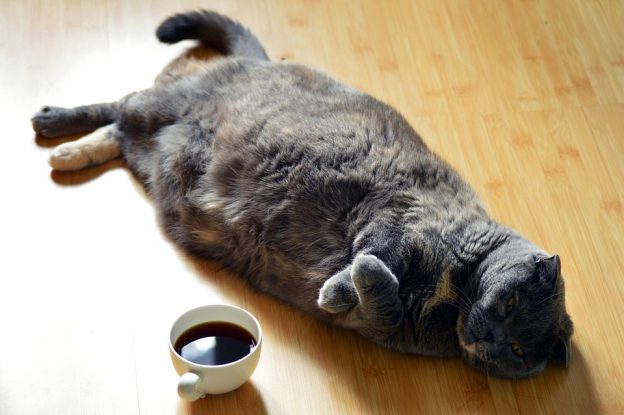Today is National Pet Obesity Awareness Day (11 October)!
Obesity in pets is becoming common place. The 2014 PDSA Animal Welfare report, estimates that one in three dogs, one in four cats and one in four rabbits in the UK are overweight or obese, and that the proportion of overweight pets will continue to grow.
These finding are a cause for concern as overweight pets are at a higher risk of developing serious health problems such as diabetes mellitus, arthritis, cardiovascular and respiratory problems and some cancers.
Take a look at the most common causes of obesity in pets:
Overfeeding
Overfeeding is a common problem, with many owners being unaware that they are feeding their pet too much. To get a better idea make sure you are reading and following manufacturers feeding guides and adjusting portion sizes appropriately depending on whether your pet is gaining or losing weight.
Feeding treats
Pets can be very persistent when it comes to treats, and it is very easy to give into to those cute, fluffy faces and feed them extra treats now and again. But when this becomes a pattern, obesity becomes more likely. Make sure you’re only feeding your pets treats in moderation.
Exercise
When it comes to exercise, the PDSA report estimates that across the country, six million dogs go for a daily walk shorter than an hour long, and a quarter of a million dogs don’t get walked at all. It is vital your pet receives exercise that is relevant to their needs in order to keep them fit and prevent obesity!
What to do if your pet is overweight
If you are concerned about your pet’s weight, the best first step is to speak to your vet to get a professional opinion on his/her body condition, and to rule out any potential underlying conditions that may be causing the weight gain. If you find your pet is overweight, your vet can recommend a weight-loss programme to help your pet lose weight in a safe and effective manner. Some practices even offer special weight loss clinics!

